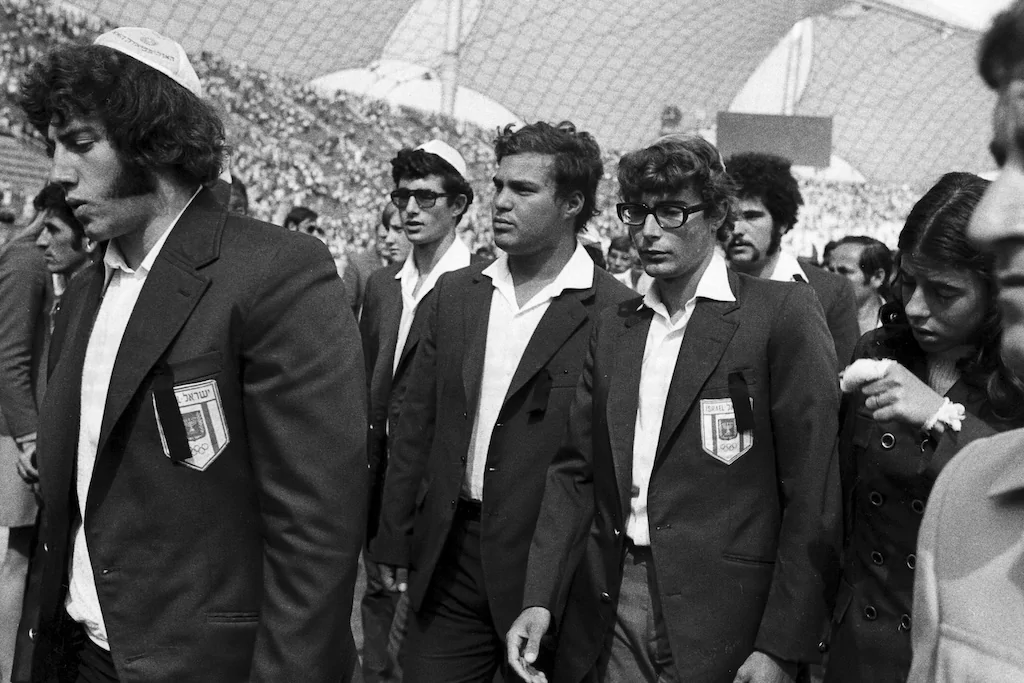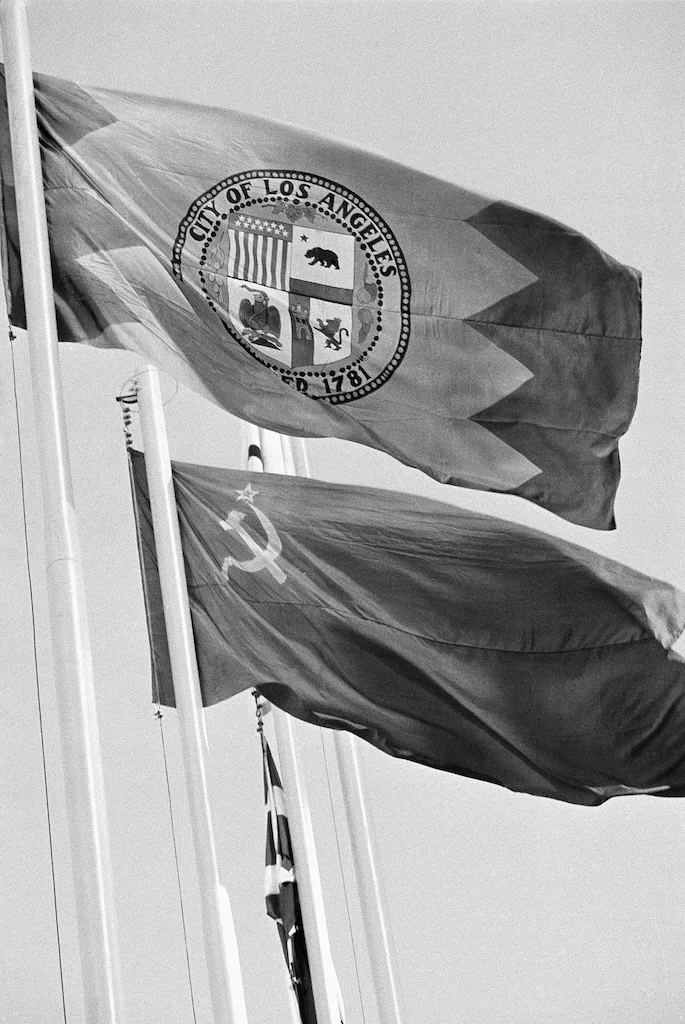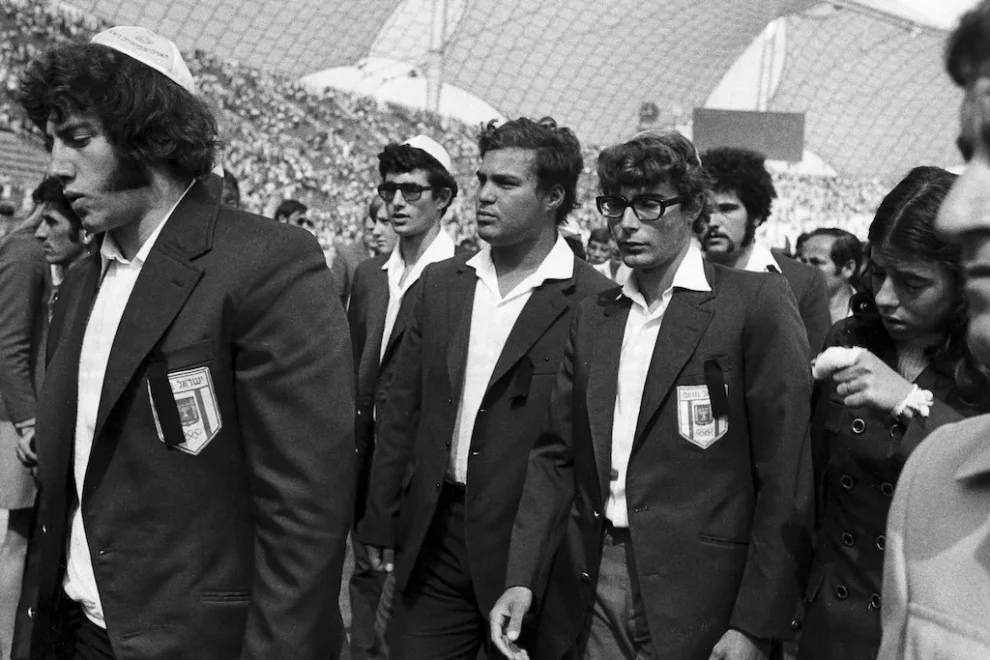The Summer and Winter Olympic Games, the world’s biggest sporting events since 1896, have served largely as a global escape from politics, but there have been times when politics has found its way into the event.
As the greatest athletes in the world gather in Paris, France, for the 2024 Summer Olympics, here is a look back at the moments in past Games when politics crossed over with the Olympic Games.
Hitler’s Games – 1936 Summer Olympics
Germany was awarded the hosting duties for the 1936 Summer Olympics in Berlin prior to Adolf Hitler’s rise to power, but they would be used as a propaganda piece for Hitler’s Nazi regime.
The treatment of Jewish people in Germany under the Nazis was already sparking outrage worldwide, which led the United States to consider boycotting the Games. Ultimately, the U.S. would send a team to Berlin, but two American Jews would individually boycott the Berlin Olympics.
Hitler tried to capitalize on the event as a showcase of Nazi-led Germany to the world. Germany would be the most successful country at the Games, but America’s Jesse Owens’s four gold medals helped dispel the Nazis’ false claims of a superior Aryan race.
The 1936 Summer Olympics are widely seen as the Games most used for propaganda purposes, with Hitler commissioning Leni Riefenstahl to make the propaganda film Olympia about the games. The Berlin Games would be the last Olympics until the 1948 Summer Olympics, due to the Nazi invasion of Poland sparking World War II in 1939.
Munich massacre – 1972 Summer Olympics
The political debate by some Middle Eastern countries over Israel’s right to exist has also been an issue at several Olympics.
One of the darkest moments in Olympic history came in 1972 at the Summer Olympics in Munich, West Germany, when Palestinian terrorists took 11 Israeli athletes and officials hostage in the Olympic Village. Attempts to rescue the hostages were unsuccessful, and all 11 Israelis were killed, along with a West German police officer. The Olympics would pause for one day before resuming.

The massacre has been seldom mentioned at subsequent Olympics, but during the opening ceremony of the 2020 Summer Olympics in July 2021, a moment of silence was held for the victims.
At various Olympic Games, athletes from some Middle Eastern countries have refused to compete against Israeli athletes. At the most recent Summer Olympics in 2021, Algerian judo athlete Fethi Nourine withdrew from the competition rather than compete against Tohar Butbul, an Israeli.
Another instance of anti-Israel sentiment in a recent Olympics occurred at the 2016 Summer Olympics in Rio de Janeiro when Lebanese athletes refused to share a bus to the opening ceremony with the Israeli team.
Boycotts in the 1980 and 1984 Summer Olympics
The Cold War between the U.S. and the Soviet Union dominated world politics for most of the second half of the 20th century, and the Olympics were not immune to the politics of the two world superpowers.
In 1979, the Soviet Union invaded Afghanistan to the condemnation of the U.S. and various other countries. President Jimmy Carter announced in early 1980 that if the Soviet Union did not withdraw from the country, the U.S. would not send a team to the Summer Olympics later that year in Moscow.
The Soviet Union would not withdraw from the country and the U.S., along with 64 other countries, joined in the boycott. The 1980 Summer Olympics had the fewest participating countries since the 1956 Summer Olympics.
The decision for the U.S. not to participate did complicate the closing ceremony, where Moscow was set to hand off the Olympics to Los Angeles, the host of the 1984 Summer Olympics. Olympic tradition stipulates that the flag of the next host country be raised at the closing ceremony, but the Carter White House refused to allow the American flag to be flown in the ceremony, according to the Los Angeles Times. The LA 1984 Olympic organizers ultimately found a workaround – raising the Los Angeles city flag, alongside the flags of Greece and the U.S.S.R.

In response to the 1980 boycott, the Soviet Union and nearly all of its Eastern Bloc allies opted to boycott the 1984 Summer Olympics in Los Angeles. Romania was the only Eastern Bloc country to participate in the Los Angeles Olympics. It received a standing ovation at the opening ceremony and had its most successful Olympics in history.
Both the U.S. and the Soviet Union, and their respective allies, would compete together again at the 1988 Summer Olympics.
China human rights concerns – 2022 Winter Olympics
The 2022 Winter Olympics in Beijing, China, saw calls for boycotts from various countries, mainly stemming from the persecution of Uyghurs in Xinjiang. The actions by the Chinese government against the minority group have been determined by the U.S. government and other countries and organizations to be crimes against humanity and genocide.
While some countries weighed a full boycott, several countries instead opted for a “diplomatic boycott,” where countries declined to send any government officials to attend the Olympic Games. The U.S., United Kingdom, and Canada declared a diplomatic boycott, while other countries did not send officials because of the COVID-19 pandemic.
With an increased focus on China due to the genocide against Uyghurs, the organizers of the 2022 Winter Olympics made a clear political statement with the lighting of the Olympic cauldron. One of the two Chinese skiers who lit the flame was a member of the Uyghur community, according to Chinese state media. During the NBC broadcast of the opening ceremony, one analyst said it was a clear “message to the West.”
CLICK HERE TO READ MORE FROM THE WASHINGTON EXAMINER
The Paris Olympics begins on July 26 with the opening ceremony on the Seine. The Games will be broadcast by NBC and its affiliate networks, with the opening ceremony being aired live at 12 p.m. EDT and replayed in prime time at 7:30 p.m. EDT.
The 2024 Summer Olympics will mark the third time Paris will host the Summer Games. At the closing ceremony on Aug. 11, Paris will hand the Games to Los Angeles, which will host the 2028 Summer Olympics.
























